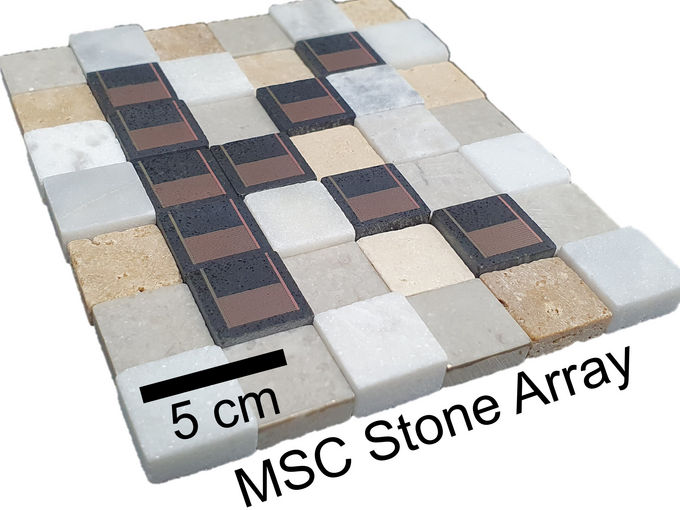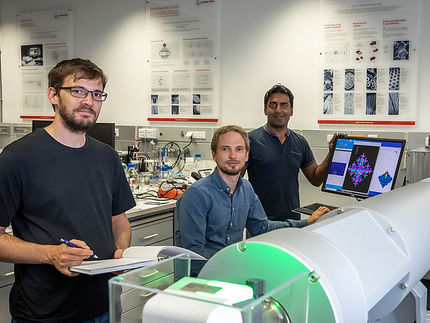Future smart homes could be powered with electronics built on stones
Stone microenergy devices could provide high-performance, customizable and conveniently accessible power from natural building materials
Advertisement
What if you could power the smart thermostats, speakers and lights in your home with a kitchen countertop? Stones, such as marble and granite, are natural, eco-friendly materials that many people building or renovating houses already use. Now, in a step toward integrating energy storage with these materials, researchers have fabricated microsupercapacitors onto the surface of stone tiles. The devices, reported in ACS Nano, are durable and easily scaled up for customizable 3D power supplies.

Interconnected microenergy devices built on marble tiles create customizable 3D power supply systems.
Adapted from ACS Nano 2022, DOI: 10.1021/acsnano.2c01753
It would be convenient if the surfaces in rooms could charge smart home devices or other small electronics without being connected to the electrical grid. And although stone is a widely used material for floors, countertops and decorative backsplashes, it hasn’t been integrated with energy storage devices, such as batteries and capacitors. But stones, even those that are polished and seem smooth, have microscopic bumps and divots, making it difficult to adhere electrical components to them. Researchers have recently figured out how to place microsupercapacitors, which have fast charging and discharging rates and excellent power supply storage, onto irregular surfaces with lasers. So, Bongchul Kang and colleagues wanted to adapt this approach to build microsupercapacitors on marble.
The researchers patterned a copper oxide nanoparticle solution on a marble tile into two comb-like sides whose prongs were interspersed. They pointed a near-infrared laser on the nanoparticles, producing pure copper electrodes that were porous, highly conductive and strongly attached to the stone’s surface. To form the microsupercapacitor, the researchers deposited iron oxide onto one of the electrodes to form a cathode, and manganese oxide on the other to form an anode. The electrolyte layer connecting the electrodes was made from a lithium perchlorate and polymer solution. In tests, the device maintained a high energy storage capacity even after 4,000 charge-discharge cycles. When multiple microenergy devices were strung together in a three-by-three array, enough energy was stored to light an LED. In addition, the stone energy storage devices were exceptionally durable against harsh impacts and could be quickly recycled. The researchers say that stone microenergy devices could provide high-performance, customizable and conveniently accessible power from natural building materials.





























































